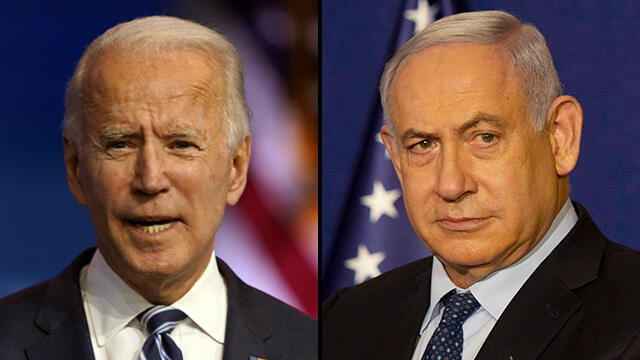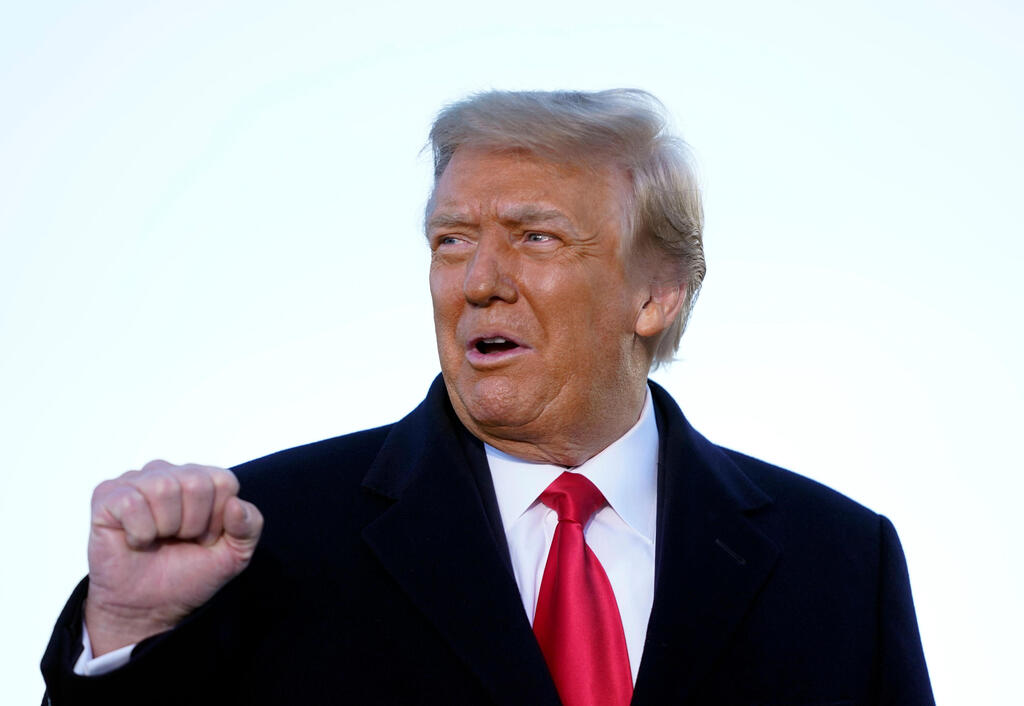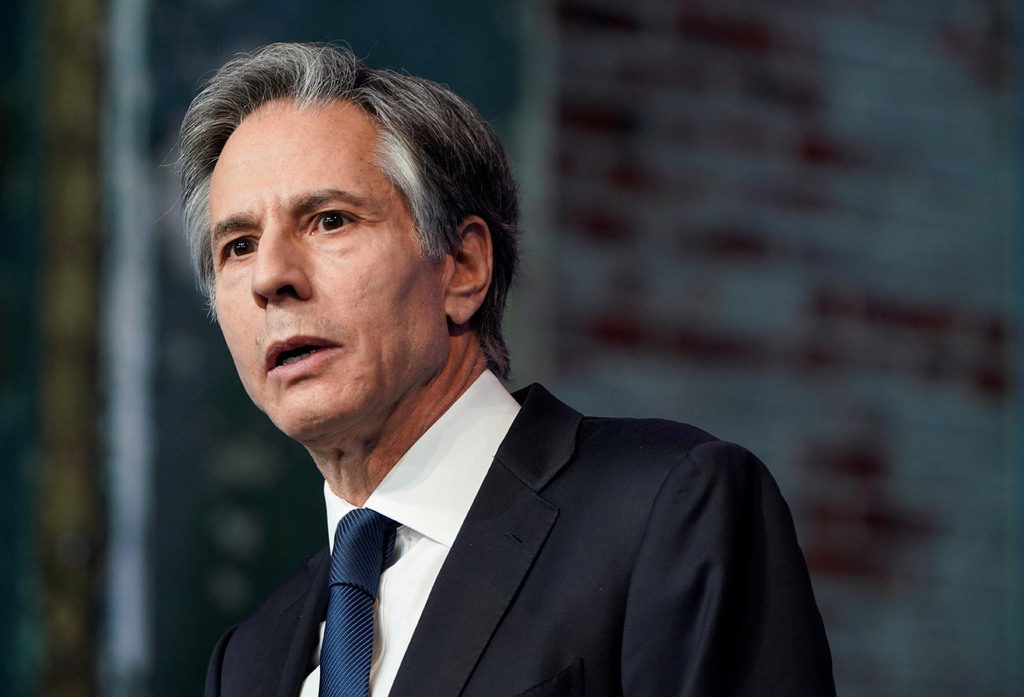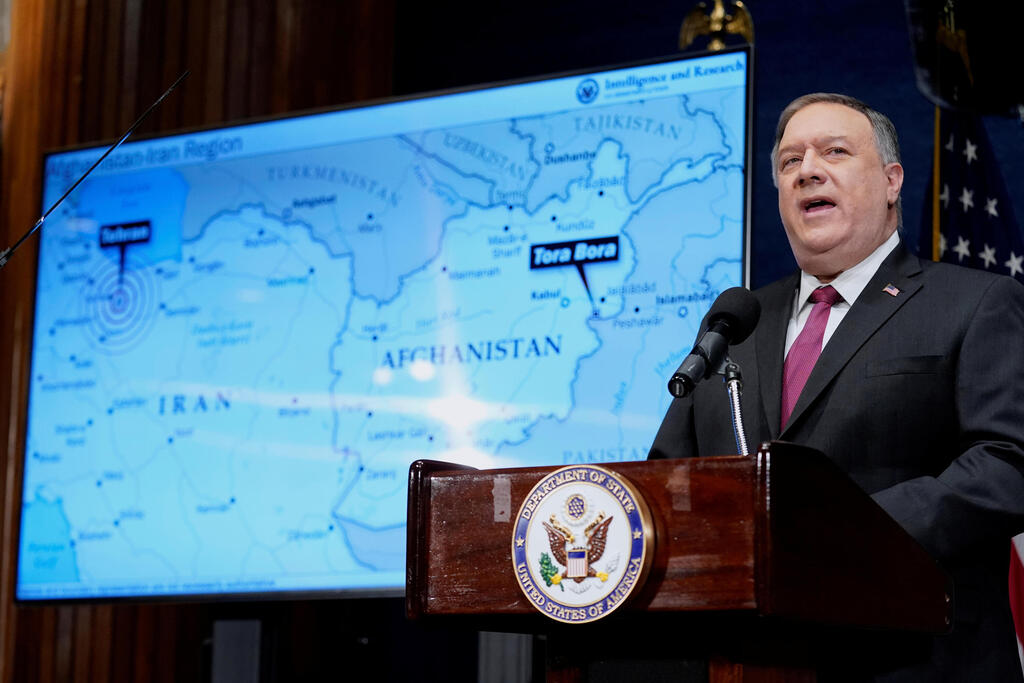Over a week after being inaugurated as the 46th president of the United States, Joe Biden has yet to call Prime Minister Benjamin Netanyahu by Thursday morning.
The 78-year-old Democrat had already spoken to Canadian President Justin Trudeau, Mexican President Andrés Manuel López Obrador, British Prime Minister Boris Johnson, German Chancellor Angela Merkle, French President Emmanuel Macron and Russian President Vladimir Putin.
For comparison, Biden's Republican predecessor, former President Donald Trump - a close ally of the Likud leader, called Netanyahu three days after entering the White House in January 2017.
Some claim Biden's supposed snubbing of Netanyahu stems from the new administration's reluctance to hand the Israeli leader any achievements that may boost his reelection bid in the upcoming March elections, given past tensions between the premier and former U.S. President Barack Obama's administration in which Biden served as vice president.
The rift between the parties only seemed to have grown after Israeli officials criticized the incoming administration's intentions to revisit the 2015 Joint Comprehensive Plan of Action, also known as the Iran nuclear deal – an agreement struck between the Islamic Republic and world superpowers, aiming to prevent it from obtaining a nuclear arsenal.
Trump withdrew from the agreement in 2018 due to what he deemed to be the agreement's failure to rein in Iran's nuclear aspirations and destabilizing effect on the region.
On the other hand, diplomats argue that Biden is simply following a U.S. foreign policy tradition to first call the Canadian leader, followed by Mexico, Britain and so on and expect him to call Netanyahu soon.
Biden's Secretary of State Anthony Blinken did, however, call his Israeli counterpart, Foreign Minister Gabi Ashkenazi.
Ashkenazi congratulated Blinken on taking office and the two discussed regional strategic issues such as the expansion of peace agreements in the Middle East and the Iranian threat among other issues.
"The United States is Israel's greatest friend and strategic partner in the peace process, regional stability, and economic aspects. The U.S.-led peace agreements have created a broad coalition in the Middle East and we must all continue to work to expand the circle of peace and remove any threat that could undermine security stability in the region," Ashkenazi said, referring to a host of U.S.-brokered peace agreements between Israel and Arab countries, also known as the Abraham Accords.
"I am sure that together we will know how to act against global terrorism and any threat to our stability led by Iran and its cronies."
Both countries' top diplomats agreed to meet as soon as travel restrictions imposed due to the ongoing COVID-19 pandemic are eased.
Earlier this week, the new White House national security adviser Jake Sullivan spoke to his Israeli counterpart Meir Ben-Shabbat.
Meanwhile, Jerusalem was surprised to learn the Biden administration has put a temporary hold on several major foreign arms sales initiated by former President Donald Trump, with officials saying that includes a massive $23 billion transfer of stealth F-35 fighter jets to the United Arab Emirates.
5 View gallery
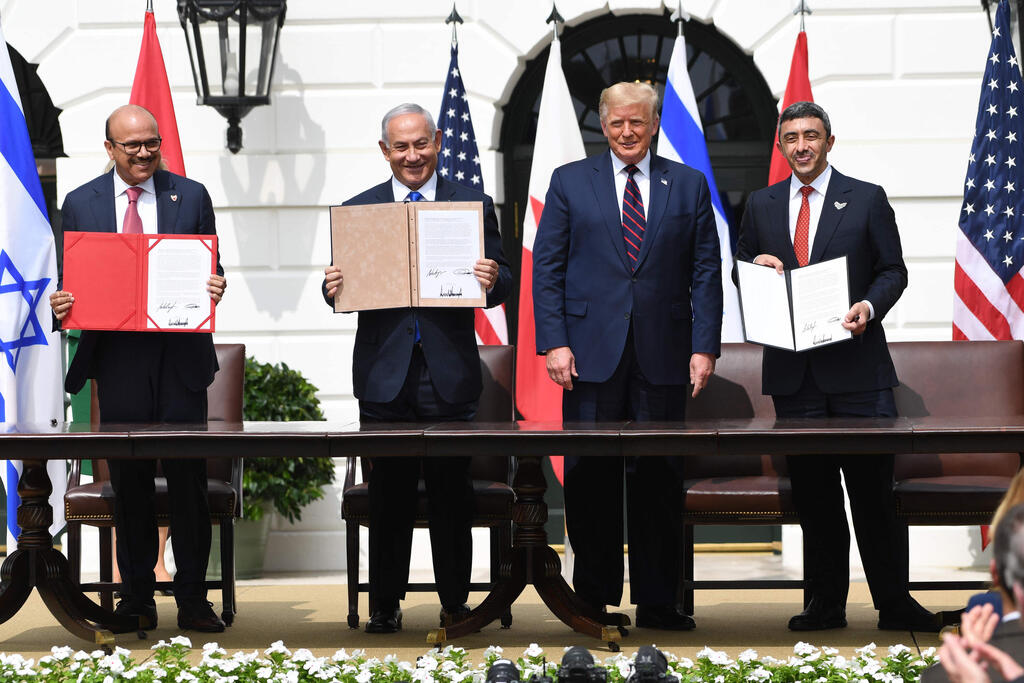

L-R: Bahrain Foreign Minister Abdullatif al-Zayani, Prime Minister Benjamin Netanyahu, U.S. President Donald Trump, and UAE Foreign Minister Abdullah bin Zayed Al-Nahyan at the signing of the Abraham Accords at the White House
(Photo: AFP)
That sale and several other massive purchases of U.S. weaponry by Gulf Arab countries had been harshly criticized by Democrats in Congress. It also found opposition within Israel following reports that Prime Minister Netanyahu gave his secret assent to the sale as part of last year's normalization agreement between Jerusalem and Abu Dhabi.
In its waning months, the Trump administration authorized tens of billions of dollars in new arms sales, including announcing plans to send 50 F-35s to the UAE.
That announcement came shortly after Trump lost the Nov. 6 election to now-President Joe Biden and followed the signing of the Abraham Accords between Israel, Bahrain and the UAE, under which the Arab states agreed to normalize relations with Israel.
Congressional critics have expressed disapproval with such sales, including a major deal with Saudi Arabia, that then-Secretary of State Mike Pompeo pushed through after bypassing lawmakers by declaring an emergency required it.
The critics have alleged the weapons could be used to prosecute Saudi Arabia's war in Yemen, which is the home of one of the world's worst humanitarian crises.
Senators argued the sale of the defense equipment had unfolded too quickly and with too many questions. The administration has billed it as a way to deter Iran, but UAE would have become the first Arab nation - and only the second country in the Middle East, after Israel - to possess the stealth warplanes.
By its own laws, the U.S. must preserve what is known as Israel's qualitative military edge in the Middle East, essentially guaranteeing that the country surrounded by multiple larger enemy states has the advantage in weaponry.
Netanyahu's critics accused him of giving away this key military advantage in order to secure image-friendly agreements with countries that Israel had never fought in a war.
The Associated Press contributed to this story.


